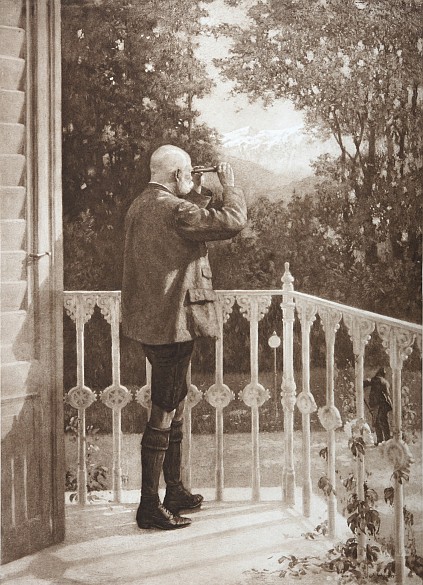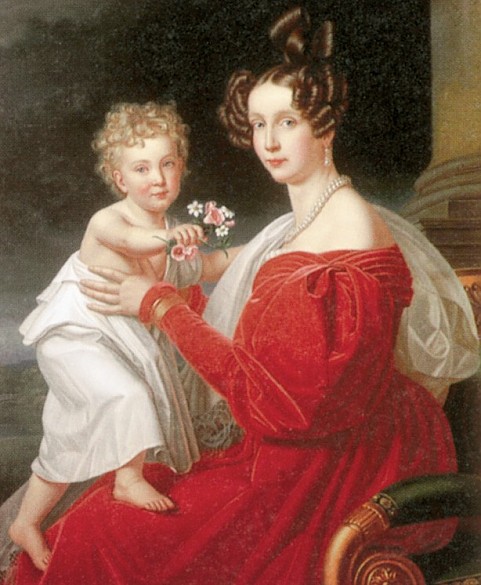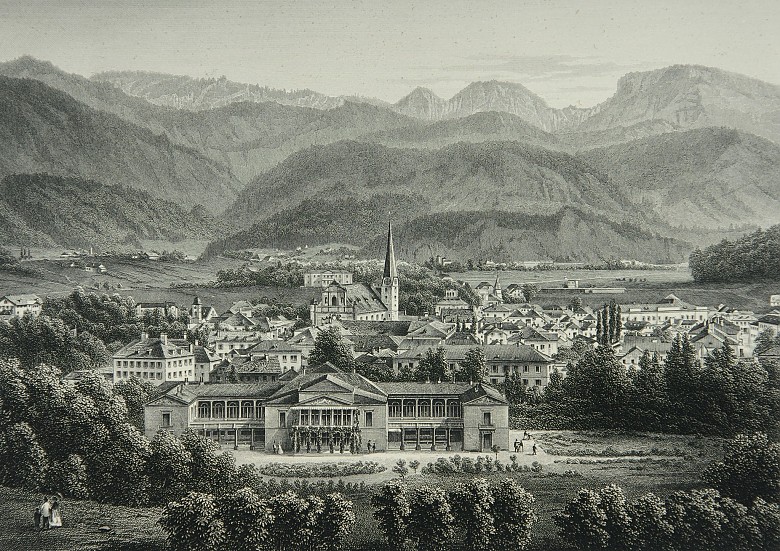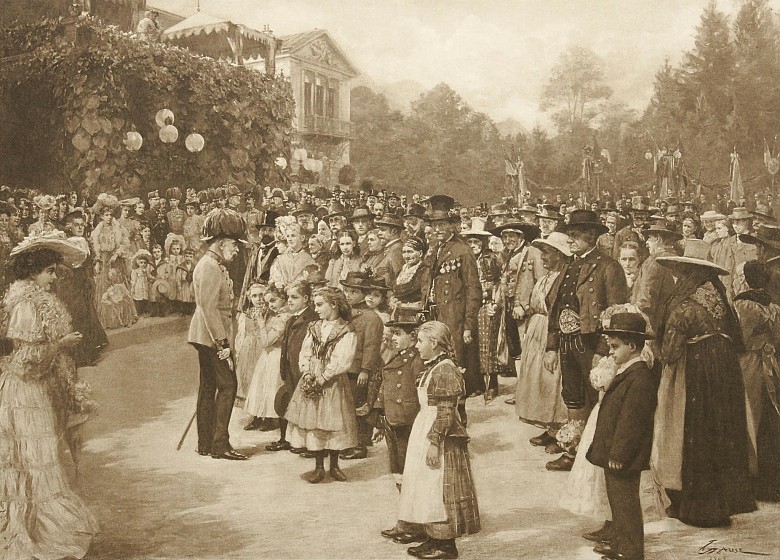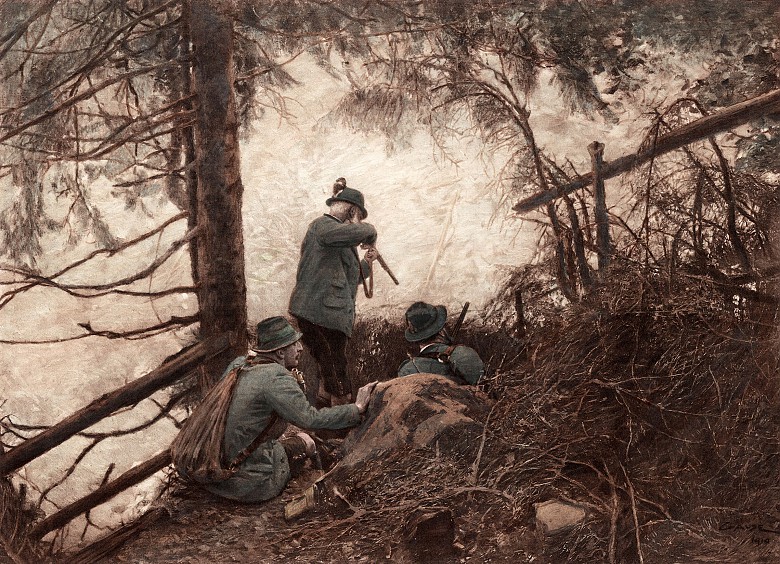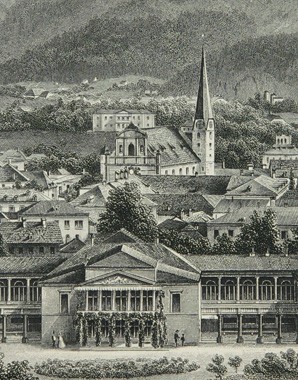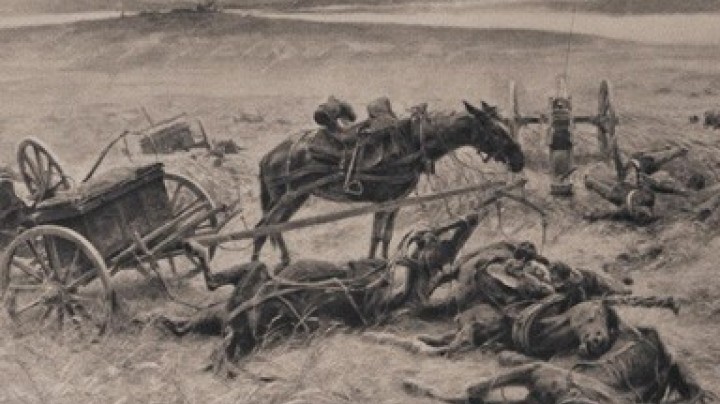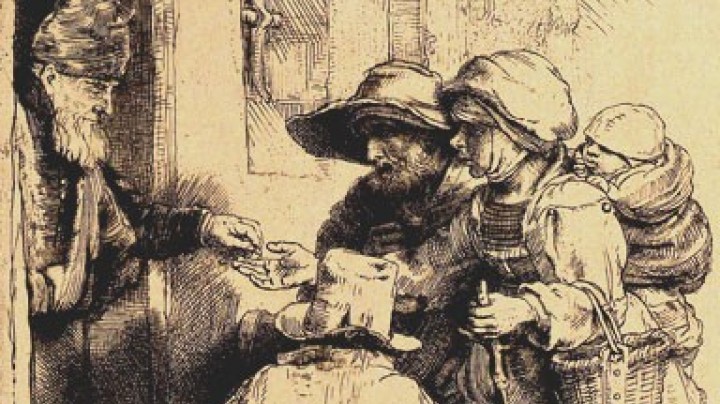Bad Ischl – heaven on earth
Franz Joseph spent his summer holiday each year in Ischl, where he displayed the most affable side of his character. The emperor felt a great attachment to Ischl, since it was here that several events of significance to both himself and his family took place.
It was Archduchess Sophie, unjustly known to posterity as Empress Elisabeth’s 'wicked mother-in-law', who discovered for herself and her family the spa resort of Bad Ischl in the Salzkammergut. In 1824, she was wedded to the second-born son of Franz II (I), Archduke Franz Karl, in the knowledge that the hoped-for sons from her marriage would one day become successors to the throne, bearing in mind the fact that her brother-in-law, the future Emperor Ferdinand, would most probably not produce any descendants. And so a great pressure weighed upon Sophie to produce healthy sons in order to ensure the continuation of the Monarchy. After five miscarriages in the first five years of her marriage, she took the waters in Ischl, since they were adjudged to have a fertility-enhancing effect. And lo and behold, just one year later, Archduchess Sophie gave birth to her son 'Franzi', later to be Emperor Franz Joseph, and in the following years produced three more Salzprinzen (‘salt princes’), as the sons became known, in memory of her stays in the Salzkammergut.
Twenty-three years later, in Ischl, one of the ‘salt princes’, Emperor Franz Joseph, who by then had already been on the throne for four years, fell in love with his cousin Elisabeth. Because the emperor’s mother was reportedly ‘so happy’ over the liaison, on the occasion of their wedding in 1854 she gave the young couple the villa later known as the 'Kaiservilla' (Imperial Villa). This Biedermeier villa, initially modest, was subsequently extended on several occasions in order to create sufficient room for the imperial family and their servants. It did not acquire its present form until 1873, with its striking ground-plan layout in the form of the letter 'E' for Elisabeth.
Ischl had meanwhile become a fashionable summer destination; holiday guests came from all parts of the Monarchy, wishing to spend the summer months in the same place as the Emperor, and hoping to get a glimpse of their monarch as a private individual. Franz Joseph, on the other hand, appreciated the landscape of the Salzkammergut principally due to the vast expanses and tranquillity of the forests and mountains round about, which were ideal for the chamois hunting which he pursued so passionately. For the emperor, his annual summer retreat to Ischl was 'heaven on earth', a place to which he 'could flee a paper-dominated desk-bound existence with all its anxieties and troubles'.
